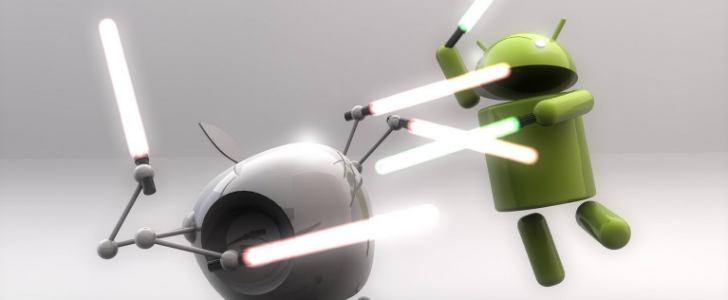Remember how things were around the turn of the millennium? It was an exciting time of Y2K hysteria, wearing our shoes through airport security, and carrying flip phones that were just that: phones. Things have changed a lot since then. Now, our phones have more computing power than NASA used during the Apollo era, and two heavyweights — Apple and Android — have emerged to duke it out in the mobile arena.
It’s clear why the two have built such a firm duopoly. From the get-go, iOS became known for its easy and playful user experience, with a stack of services that work together seamlessly. On the other hand, Android won the hearts of users through its highly customizable keyboard and home screen capabilities.
Then, there was Windows. The Windows phone arrived late on the scene, without a compelling reason for users to make the switch. With its poor notification system and cumbersome multitasking capabilities, it flopped.
Still, Apple and Android’s rule over the mobile market is far from permanent. Any mobile player that can make significant breakthroughs in one of the two areas below has the potential to disrupt this duel to the death.
1. Provide a more streamlined content input experience
Some of the most common complaints shared by mobile users revolve around the difficulty of inputting and sharing content. These complaints range from frustrating typos and autocorrect errors to difficulty entering an address into Google Maps or sharing a photo on Facebook.
Users are adept at multitasking and accustomed to instant gratification. They want as few barriers as possible between impulse and result; they want a content experience that is fast, easy, and fun. Any company that can streamline content input and make sharing across apps truly seamless will have a chance at upsetting the market.
2. Provide a great product at a lower cost
While Android has found a way to offer cheaper devices, if you want to experience the latest and best versions of it, you still need to buy something more expensive. Apple rolled out the iPhone 5c with the hope of reaching emerging markets with a more affordable smartphone, but it’s still too expensive for many of the markets Apple is trying to reach. With the emergence of wearables, we’re going to see a race for the company that can provide the best experience at the lowest cost.
One contender to watch
Not to jinx it, but a promising system with the potential to disrupt the Android-Apple duopoly has emerged. Tizen, a Linux-based operating system, is one big elephant in the room backed by companies like Intel and Samsung.
With the advent of wearable devices, Tizen stands to be the one system capable of seamlessly integrating with them. Tizen is both open source- and standards-based, giving it the ability to provide high interoperability to a myriad of systems — a capability which will soon be a necessity.
What’s the one thing holding Tizen back? It just needs one killer feature that will give users a compelling reason to switch platforms.
The tech space is changing rapidly, and consumers expect mobile to keep up, demanding an effortless experience that integrates with other devices for less. With mobile Internet usage soon to overtake desktop in 2014, there will be more mobile devices than people on Earth, and in effect, room for another mobile player to throw a hat in the ring.
Ioannis Verdelis is the co-founder and COO of Fleksy, a revolutionary keyboard that makes typing on a touchscreen so easy you can type without even looking. Connect with him on Twitter.


Leave a Reply